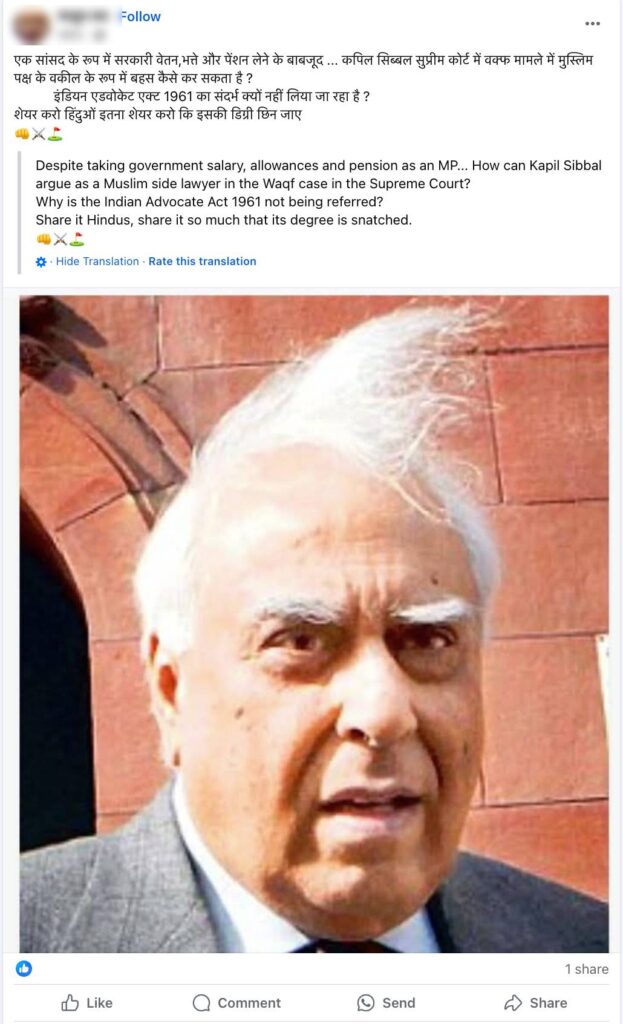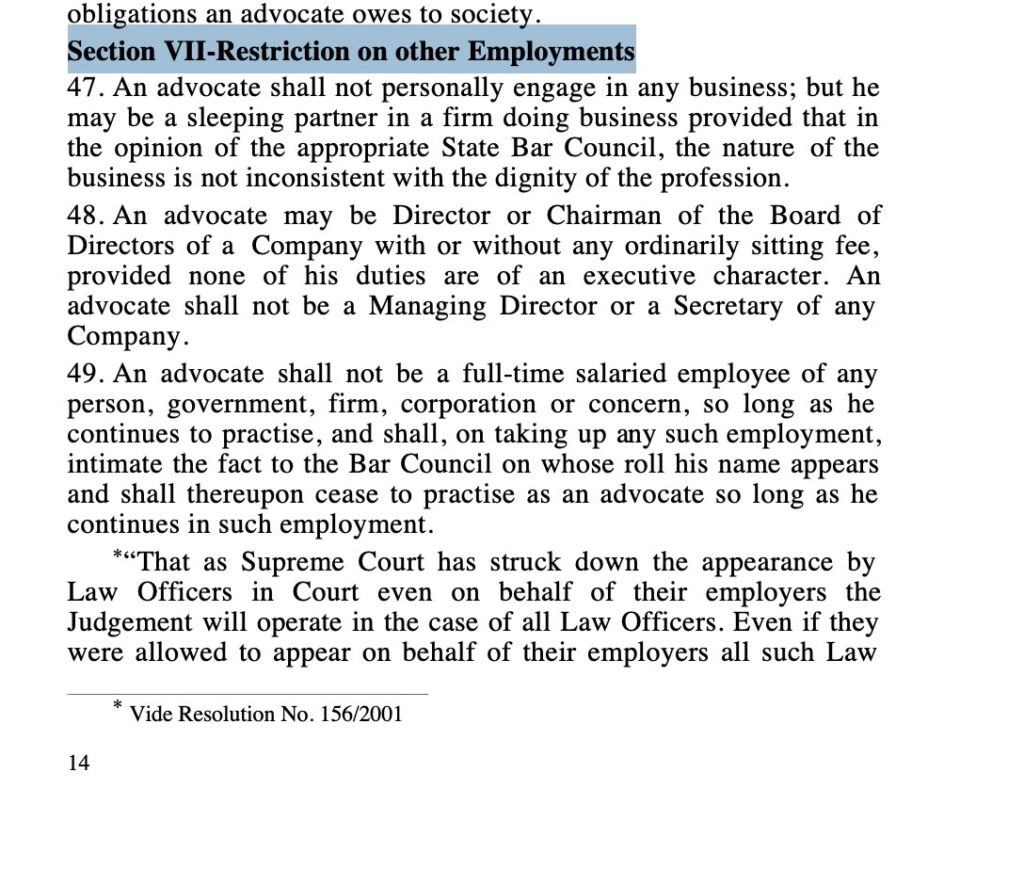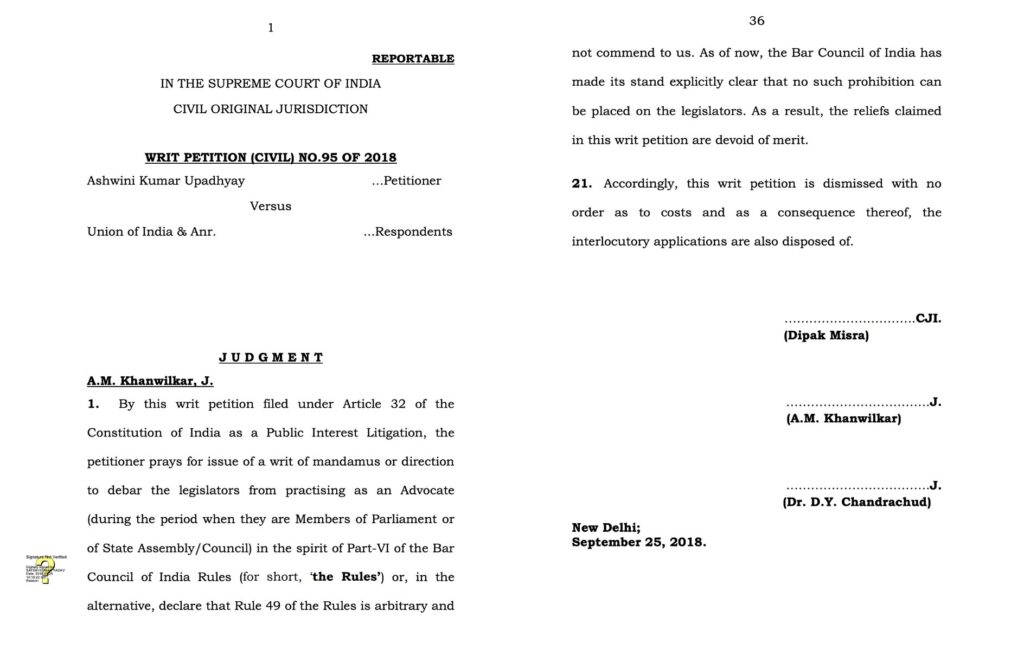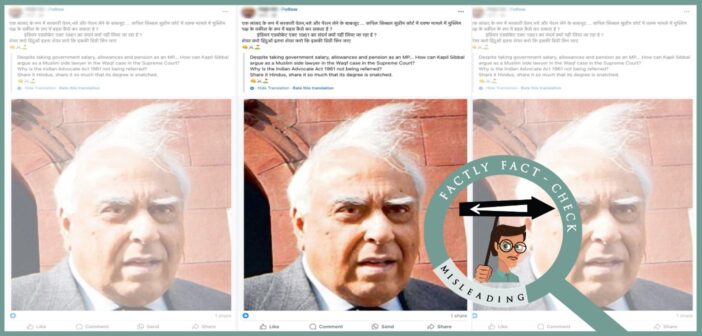On 17 April 2025, the Supreme Court of India heard a batch of writ petitions challenging the constitutional validity of the Waqf (Amendment) Act, 2025. Among these was Writ Petition (Civil) No. 269/2025, filed by Asaduddin Owaisi. The petitions were heard by a three-judge bench comprising the Chief Justice of India, Sanjiv Khanna, and Justices Sanjay Kumar and K.V. Viswanathan. The Court issued an interim order outlining procedural steps for the ongoing legal proceedings, which have attracted considerable attention due to the Act’s implications for waqf property management and religious autonomy. The Court directed the Central Government to submit a preliminary response within seven days from 17 April 2025. The next hearing is scheduled for 05 May 2025. Several prominent lawyers have represented petitioners opposing the Waqf (Amendment) Act, 2025. Notably, Senior Advocate Kapil Sibal appeared on behalf of the Jamiat Ulama-i-Hind, led by Maulana Arshad Madani (here, here).
In this context, a post is circulating on social media alleging that, under the Indian Advocates Act, 1961, Kapil Sibal cannot argue against the Waqf (Amendment) Act, 2025 in the Supreme Court, as he receives a government salary, allowances, and pension as a Member of Parliament (here, here, and here). The post further asserts that legislators in India (MPs/MLAs/MLCs) are barred from practising as advocates while serving their term. This article aims to fact-check the accuracy of this claim.

Claim: According to the Indian Advocates Act, 1961, Legislators (MPs/MLAs/MLCs) in India are barred from practising as advocates while serving their term.
Fact: MPs/MLAs/MLCs are not prohibited from practising law during their term under the Indian Advocates Act, 1961. While Rule 49 of the Bar Council of India Rules (framed under the Advocates Act, 1961) bars advocates from practising law while engaged in full-time salaried employment, this provision does not apply to legislators. On 25 September 2018, the Supreme Court dismissed a petition filed by Ashwini Kumar Upadhyay in February 2018, which sought a ban on legislators practising as advocates during their tenure. The Court clarified that Members of Parliament, State Legislative Assemblies, and State Legislative Councils are not regarded as “full-time salaried employees” and, therefore, Rule 49 does not apply to them. Hence the claim made in the post is MISLEADING.
To verify the accuracy of the viral claim, we reviewed the Indian Advocates Act, 1961, and found no provisions or rules that prohibit legislators from practising as advocates while serving their term. The Advocates Act, 1961, which governs the legal profession in India, grants the Bar Council of India (BCI) the authority to establish rules regarding the conduct of advocates.
Subsequently, we visited the official website of the Bar Council of India and reviewed its regulations. According to the BCI Rules, under Part VI: Rules Governing Advocates, Chapter II: Standards of Professional Conduct and Etiquette, Section VII – Restriction on Other Employments, if an advocate accepts full-time salaried employment, they are not permitted to practise law while in that position. Upon taking such employment, an individual is deemed to have suspended their legal practice, unless they resign from the position and notify the Bar Council. While part-time or consultancy roles are not automatically prohibited, they may still be examined for potential conflicts with the independence or dignity of the legal profession.
Under Rule 49 of the Bar Council of India Rules (framed under the Advocates Act, 1961), advocates are prohibited from practising law while engaged in full-time salaried employment. This rule specifically applies to individuals in full-time salaried positions, barring them from continuing legal practice. However, the role of a legislator, such as a Member of Parliament or a Member of a Legislative Assembly, is not considered a standard employment relationship under this rule and, therefore, does not fall within the scope of this prohibition.

In February 2018, Ashwini Kumar Upadhyay filed Writ Petition (Civil) No. 95 of 2018 under Article 32 of the Constitution, seeking a ban on legislators from practising as advocates during the period they serve as Members of Parliament or State Assemblies. The petition was based on the spirit of Rule 49 of the Bar Council of India (BCI) Rules and Article 14 of the Constitution. The petitioner argued that legislators, being full-time public servants drawing salaries from the public exchequer, should not be allowed to practise law concurrently. He contended that holding dual roles could result in conflicts of interest and amount to professional misconduct. The petitioner referred to Rule 49 of the BCI Rules, which prohibits advocates from engaging in full-time salaried employment, asserting that this provision should extend to legislators as well.
The Supreme Court examined the nature of a legislator’s duties and the relevance of Rule 49 of the BCI Rules. It observed that while Rule 49 bars advocates from undertaking full-time salaried employment, it does not explicitly prohibit legislators from practising law. The Court also considered previous judgments and relevant constitutional provisions concerning the responsibilities of legislators.
On 25 September 2018, a three-judge bench of the Supreme Court, comprising Chief Justice Dipak Misra, Justice A.M. Khanwilkar, and Justice Dr D.Y. Chandrachud, dismissed the petition. In its judgment, the Court clarified that Members of Parliament, State Legislative Assemblies and State Legislative Councils are not considered “full-time salaried employees” and, therefore, Rule 49 does not apply to them. The Court further held that any such restriction must be enacted through legislation and cannot be imposed through judicial interpretation. It emphasised that, unless Parliament enacts a law specifically prohibiting such dual practice, legislators are permitted to continue practising as advocates.

To sum it up, legislators (MPs/MLAs/MLCs) are not prohibited from practising law during their term under the Indian Advocates Act, 1961.



